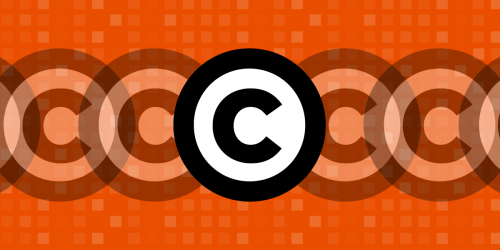Yesterday and today, the House of Representatives Judiciary Committee has hunkered down in the Capitol for markup sessions of SOPA, the Stop Online Piracy Act. The basic facts looked bleak: this Internet blacklist bill is a disaster that stands at odds with the Constitution, but the deep pockets of its legacy media backers managed to make it enough friends in committee that its quick passage seemed possible. Judiciary Committee Chairman, author of the bill, and “Hollywood’s Favorite Republican” Lamar Smith scheduled just a single hearing, stacked the deck in his bill’s favor, and rushed it through to markup now, at the end of the legislative session.
But then a funny thing happened: the Internet fought back. It started in bits and pieces, from our coverage of the bill’s introduction to the citizens who took our action alert and told their Congressmembers that Internet censorship is unacceptable. Then more and more people began realizing the dangers of SOPA and finding their voice against it. One month ago today, American Censorship Day counted almost 6000 participating sites, tens of thousands of people called their Representatives, and more legislators started coming out against the bill.
It was clear then that Congress wouldn’t be able to slip SOPA through under the public radar. But this week was the most important one yet, with the bill heading to markup and possibly even to the floor. That’s why EFF, with a broad coalition of organizations (of all political stripes), tech companies, innovators, and users, declared this week a Week of Action Against Censorship.
It’s been quite a week. At the last minute, SOPA’s sponsors tried to pull a fast one by introducing a “new-and-improved” version just before the markup. But we – and you – weren’t fooled. As we’ve noted, SOPA still conflicts with the U.S. Constitution, despite the protestations of one misguided legal scholar SOPA would, undermine your freedom of speech, hurt students and educators, and harm the U.S. position in international negotiations for a free Internet. And you don’t have to take our word for it — ask Vint Cerf, Paul Vixie, and over 80 more Internet inventors and engineers who signed and open letter against online censorship, which was entered into the Congressional record by opponents of SOPA during the markup.
But the most important thing to happen this week was that thousands of people took action to oppose the bill, calling their representatives and spreading the word via blogs, tweets, social media videos and word of mouth.
And it looks like it made a difference. In a marathon markup session yesterday, which we covered on our live-Tweeting stream @EFFLive, a persistent group of Representatives attacked SOPA from all fronts. Although there wasn’t enough opposition to kill the bill outright, the messages we’ve been sending for weeks — that the bill would create blacklists for online censorship, harm cybersecurity efforts, set a bad international precedent and lead to a fractured Internet — couldn’t be ignored.
During a markup session earlier today, Chairman Lamar Smith acknowledged that the Judiciary Committee didn’t yet have all the facts, especially on the cybersecurity questions. After an amendment vote he abruptly announced that markup would be suspended, and consideration of the bill would be resumed at the next practicable opportunity — which is tentatively scheduled for next week, but could be pushed to late January.
Legislators’ considering facts when crafting new laws is a good thing, and we commend Chairman Smith for recognizing it. We also want to acknowledge Representatives Zoe Lofgren, Darrell Issa, Jared Polis, and Jason Chaffetz, who brought refreshing perspective and expertise to the markup session. Their input — and actual amendments — stand in clear contrast to SOPA proponents’ common refrain that the opposition doesn’t contribute any real suggestions. (Another fact belying that refrain: there is an alternative bill already on the table: the OPEN Act proposed by Senator Ron Wyden and Representative Darrel Issa. It’s not perfect, but it takes the conversation in a better direction, and we urge Internet users to go the http://www.keepthewebopen.com to contribute their views on it.)
The markup suspension is an important victory, but the blacklist bills are not yet beat; it’s still important that we all continue to take action against them. If you haven’t yet taken our action alert to send a message to your legislators, now is the time!








